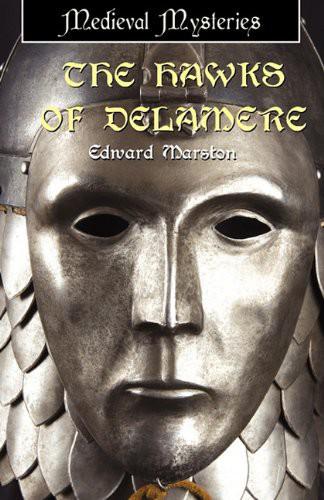
The Hawks of Delamere PDF
Preview The Hawks of Delamere
Edward Marston is perhaps best known for his Edgar-nominated series of theatrical whodunits set in Elizabethan England (The Roaring Boy and The Mad Courtesan). In his Domesday Books series, of which The Hawks of Delamere is the seventh, Marston has turned his attention to an earlier era: the 11th century, when England was still cautiously--and bloodily--attempting to negotiate the legacy of the Norman invasion.
Ralph Delchard, a Norman aristocrat, and Gervase Bret, a quiet Saxon clerk, are in dangerous territory: they have arrived at the Welsh border to settle territorial and taxation disputes on behalf of King William. The Welsh appetite for rebellion festers uneasily beneath the placid countryside, and Hugh d'Avranches, the royal delegation's host, seems destined to be the main course at that bloody feast. A man of imposing girth and even more imposing temper, he has been the target of a Welsh assassin's arrow. Only Ralph and Gervase suspect that the arrow might have been of Norman origin, and their investigation leads them to the heart of Hugh's court.
Marston has a tedious tendency to pontificate his characters' emotions to the reader rather than allowing dialogue or action to convey them more subtly: "Gervase's blood coursed, and he was momentarily confused, not sure whether he was doting on his betrothed or showing an improper interest in a vulnerable young woman. Gytha's embarrassment suggested that she, too, was grappling with warm feelings which caused her some concern." The author's slips into the jargon of 20th-century pop psychology are equally jarring: "She looked up with a pathetic need for approval. 'Did I do right?'" Even Marston's efforts to capture the physical essence of an 11th-century Norman fortress has the air of an imperfectly recalled perusal of a rather dull sightseeing guide.
Readers seeking a deftly handled combination of mystery and the Middle Ages would do better to consult Ellis Peters, whose Brother Cadfael series takes pride of place in the genre. One hopes that Marston will soon return to the more forgiving glow of the Elizabethan stage, where he and his characters seem much more comfortable. --Kelly Flynn
